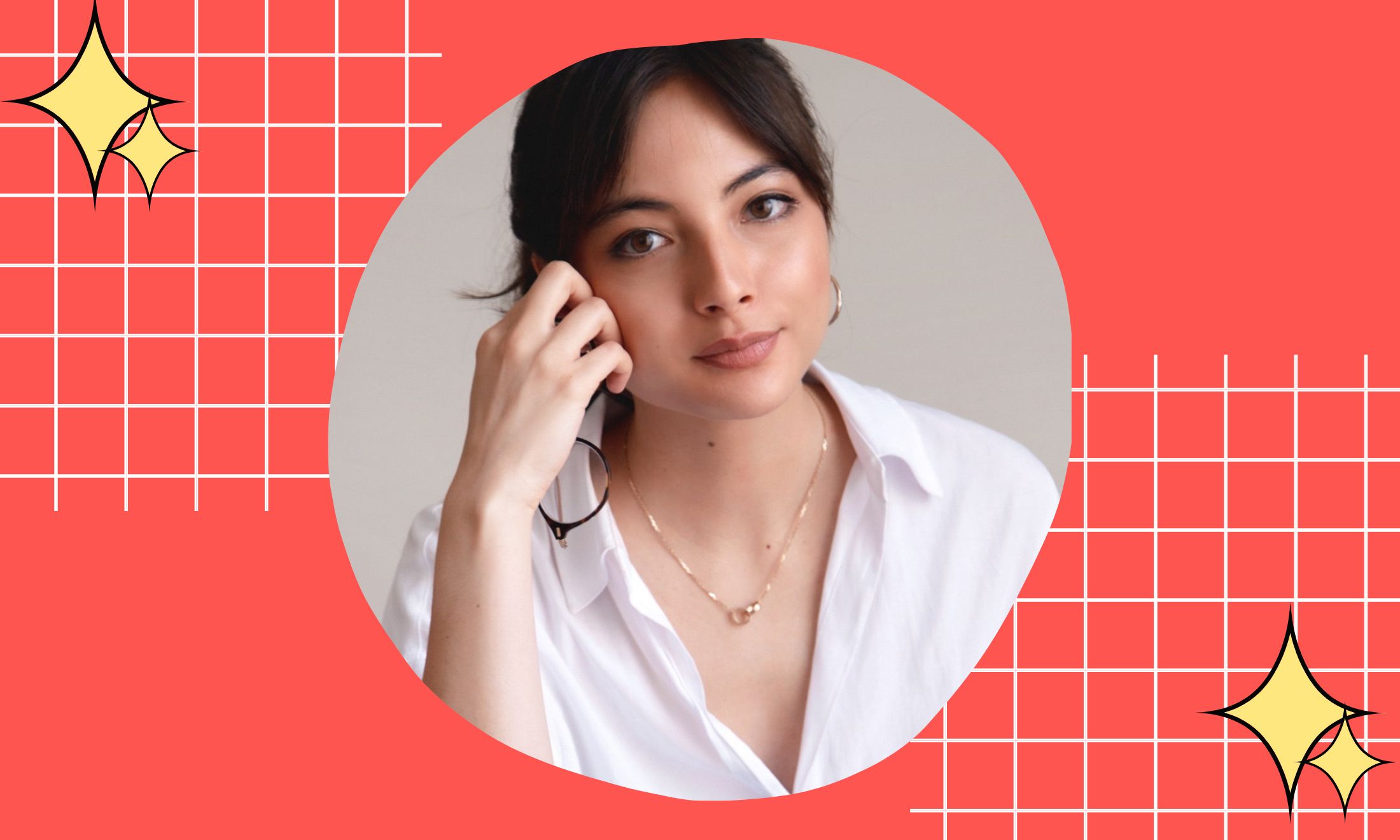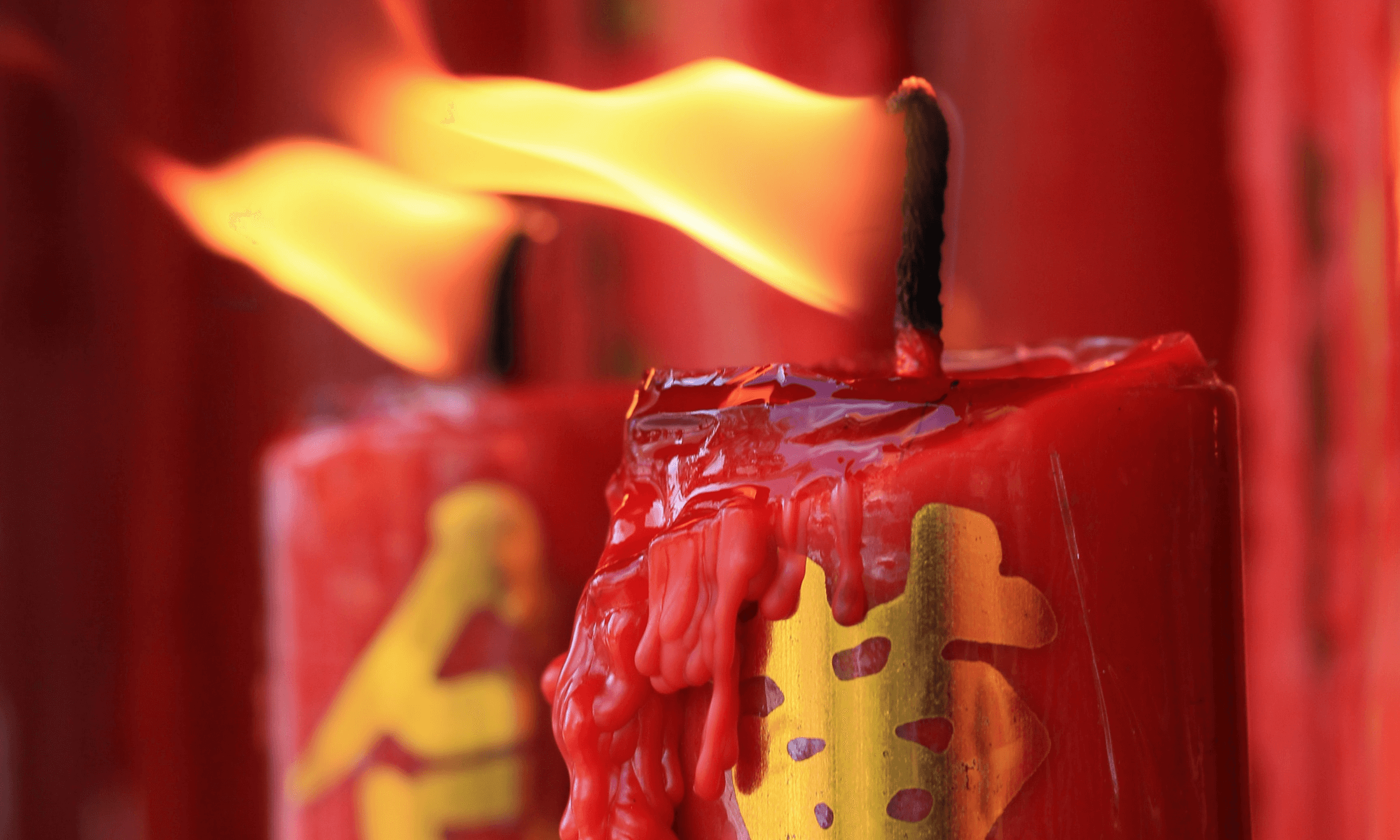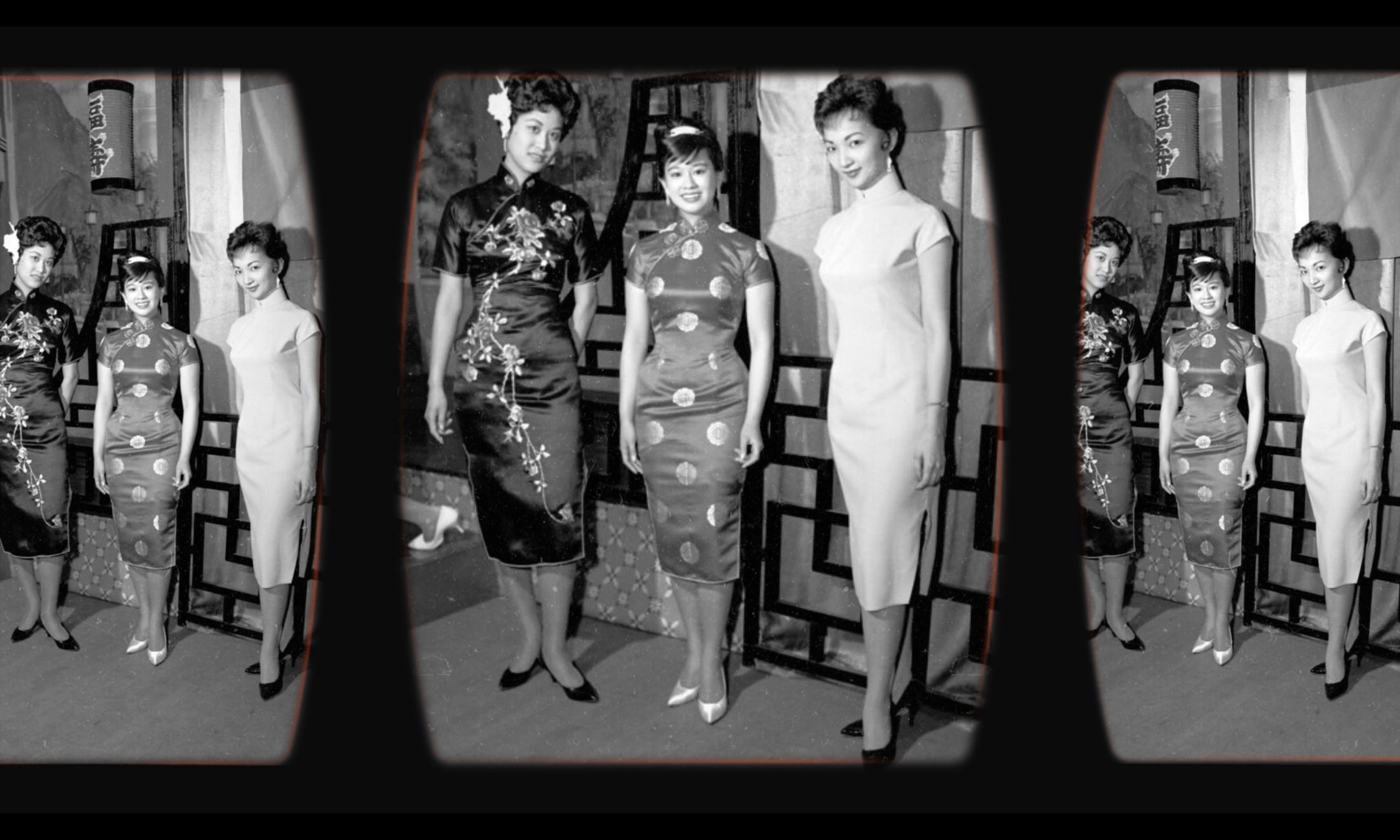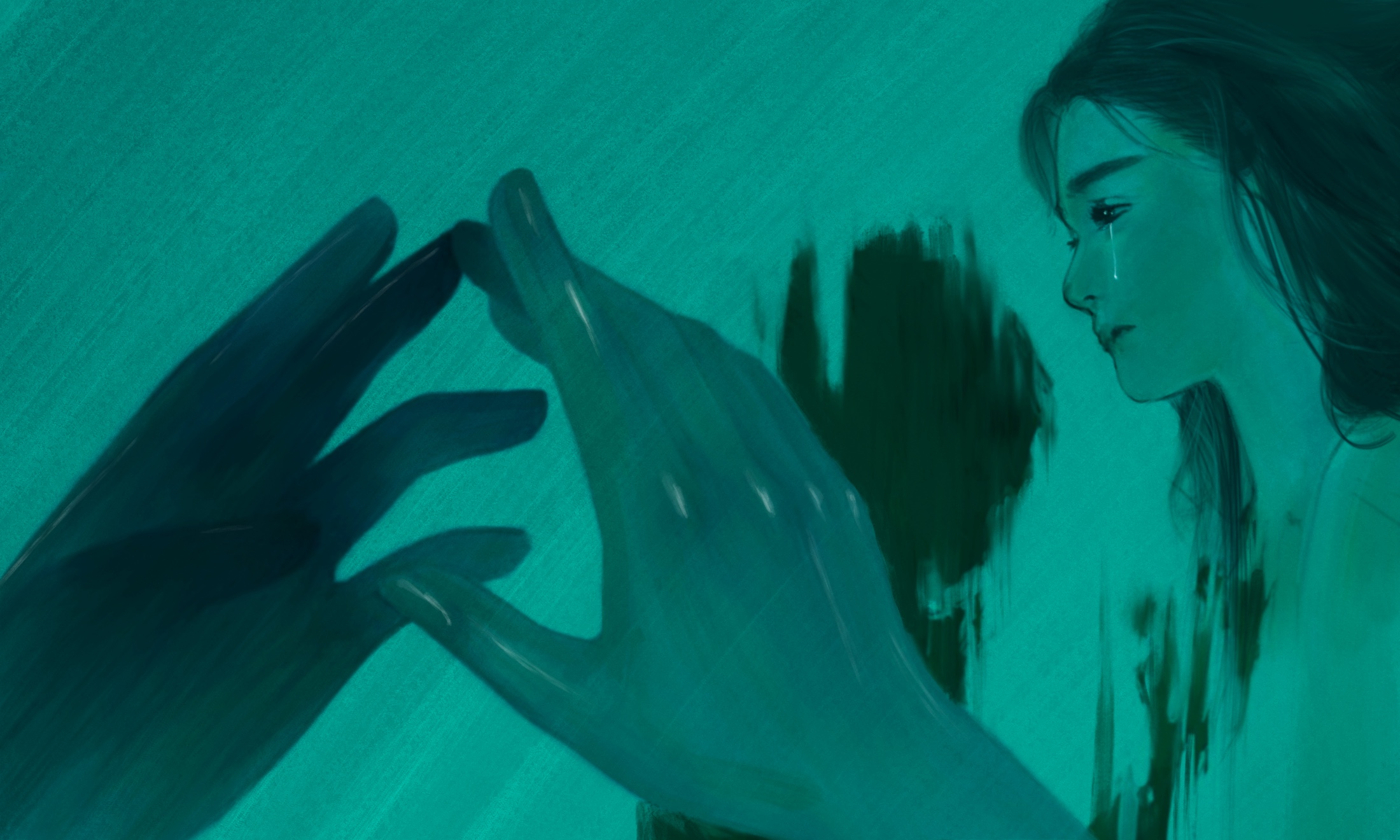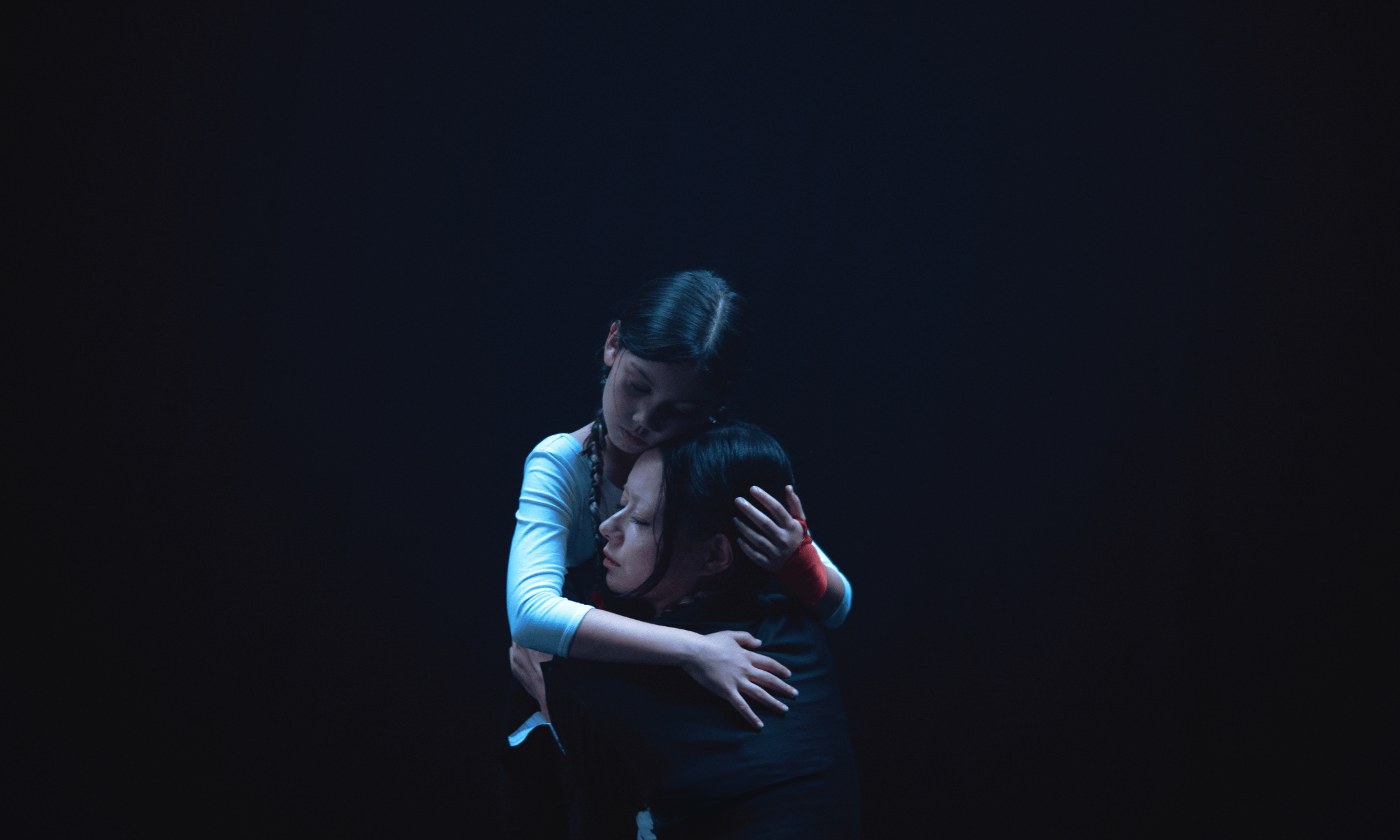
David Lee
How Mitski’s music allowed me to cherish all parts of myself
Growing up mixed-race, I have never known how to carry all the parts of myself. Discovering Mitski's music, I felt a sense of intimacy and understanding.
Nina Mingya Powles
27 Dec 2021
The first song I ever heard by the American musician Mitski was ‘First Love / Late Spring’. I was sitting at my desk in my dorm room in Shanghai. It was the summer of 2016, early June, and I was halfway through my first year of Mandarin language studies at Fudan University. The sky was a pale, polluted blue. My air-conditioning unit was so powerful that condensation formed on the outside of my window. I switched it off and pressed play. I felt the air grow heavy and still in my arms.
I noticed a swelling in my chest and in my stomach, like something about to burst. I noticed how her voice lingered on each word: “something sweet / A peach tree.”
I’d been scrolling through the album tracklist and was intrigued by the forward slash within the song title. In my own writing, I’d started using the symbol often, both in poems and prose, to signal something essential I didn’t fully understand yet, like an attempt to punctuate myself into existing in two places at once. Also, I use it as a way of denoting a line break when setting poetry or lyrics within prose. A breath, a pause, a sharp shift.
/
In the dark cinema, I grew more acutely aware of the distance between his skin and mine. Out of the corner of my eye I could see his face struck by silver light.
He was half Chinese, too, but unlike me, he could speak fluent Mandarin. Unlike me, he talked too much when he felt nervous. Unlike me, he was a man, and as such he was accustomed to taking up space – physical space, conversational space.
At unexpected intervals he offered me small, deliberate touches. A brush of my wrist, a moment-too-long touch of my shoulder. The possibility of this physical contact kept me alert, slow-burning along my spine like a live wire.
I noticed that he spoke with disdain about Asian girls with white boyfriends. ‘Those girls wouldn’t go near an Asian guy.’ When he eventually started to ignore my WeChat messages, I began to entertain the possibility that I was not Chinese enough for him.
/
Once, in a stationery shop in Beijing, the woman behind the counter reached out to touch my hair and said, breathless, “混血?” Mixed blood?
I was buying a gift for my mum. “你是不是混血?” Are you mixed? She smiled, her eyes bright. I nodded at her. I felt pleased to be noticed this way, to be seen. But I wished she had asked before touching my hair.
In China I have always been a foreigner, even though people sometimes recognise that I’m 混血, hùnxuè, mixed blood. In China, my hair is the most obviously foreign part of my appearance. It’s thick, wavy and a shade of chocolate brown that fades to dark gold in the summertime.
/
I mourned him, but in an adolescent kind of way. Part of me knew I wasn’t mourning the loss of a real person but the loss of a fantasy. I went for long walks through the campus at night listening to Mitski’s Puberty 2. I became more deeply invested in my aloneness. Aloneness, not loneliness.
When I realised that Mitski was part Japanese, I listened again to ‘Your Best American Girl’ and heard it properly for what felt like the first time. In the song, Mitski, or perhaps a dream-version of Mitski, sings to her all- American boy, her doomed love, “Your mother wouldn’t approve of how my mother raised me / But I do, I think I do.” Her voice starts out strong and whole, then quietens, faltering but intact. At the end of the song, the line repeats but with a different ending: “But I do, I finally do.”
“When I realised that Mitski was part Japanese, I listened again to ‘Your Best American Girl’ and heard it properly for what felt like the first time”
Many people don’t register my otherness straight away, until I reveal it to them. While people of colour can often tell straight away that I’m mixed, white people seem less able to detect any racial difference in me.
/
In her response to an interview question about the term half-caste, the poet Tayi Tibble said: “When I think of that word, I get an image in my head of being split and split again to the point where you just shimmer like glitter.” Her words remind me of the song that has earned Mitski adoration as a lyricist as well as a performer, in which she sings: “My body’s made of crushed little stars / And I’m not doing anything.”
Some like to talk in terms of fractions: one-quarter, one-eighth, one-sixteenth. I can feel all the pieces of myself getting smaller and smaller. How do I carry them all?
In his essay Mixed-Race Superman, Will Harris writes that “with too many heritages or too few, too white or not white enough, the mixed-race person grows up to see the self as something strange and shifting [. . .] shaped around a lack.” I sometimes wonder if I made myself forget how to speak Chinese. When I was on the cusp of teenagehood, I pretended I didn’t have a middle name at all, just a blank space where the word once was.
/
The artist Talia Smith, who is of Pacific Island and New Zealand European descent, documented her experience of returning to the Cook Islands in a series of photos, videos and poem-like texts titled ‘The heart is the strongest muscle in the body’. One image is of a pastel-pink sunset with blue clouds visible in faint reflections on the surface of a body of water. The sea is a metallic plane of pure colour. On the horizon there’s a shape that looks like part of a distant island, but it’s not clear. It is the kind of sea I feel I’ve seen in a dream, completely still and covered in a silvery mist. In the deep blue space between sea and sky there’s a thin tear in the photographic paper, splitting the landscape almost in half. Next to the image, Smith writes:
“I wonder if I got my curly hair from my ancestors
whose bones are buried on this island.
[. . .]
Do bloodlines run that deep and long?”
Smith’s work is nostalgic and filmic, like watching a string of snapshots from sun-bleached childhood memories with subtitles running underneath. There is an underlying sense of loss, and also tenderness. Remaking memories is an act of tending, of connecting with the past.
/
When I saw Mitski play in London in 2018, a pair of teenage girls stood close to me in the crowd. It was as if Mitski was playing for them and them alone. And in that moment, in their reality, she really was. I watched as they screamed and cried and danced holding each other and I could tell that for them there was only the sound of the guitar chords, her voice, their voices, the pink and gold lights, their bodies, their arms. One of the girls took out her phone at the beginning of each song, not to take pictures but to note down the setlist. I watched while Mitski invented and reinvented punk and indie rock and love and loss for the girls, right before their eyes.
“I feel a sense of intimacy with Mitski’s music – I sometimes feel it existing in close proximity to my own work – but I couldn’t claim to know or understand her as a person”
I was experiencing something holy, too. But for me it was different. I feel a sense of intimacy with Mitski’s music – I sometimes feel it existing in close proximity to my own work – but I couldn’t claim to know or understand her as a person. I deeply admire Mitski, but she’s not my idol. Maybe it’s because we’re close in age or maybe it’s because I’ve read about how realistic she is in terms of her career, about making it sustainable, about surviving long-term as an artist, and I’m trying to do the same.
/
Mitski’s band shares the stage with her for all but two songs, but I almost don’t notice that they’re there. Mitski’s movements seem to take up the whole stage, her face serious and serene as if she’s in her own world, moving inside her own halo of blue light.
When she begins to play ‘Your Best American Girl’, a reaction occurs first somewhere in my body, deep at the base of my spine, then in my stomach, then in my hands and wrists, which start to tremble. I try not to cry; I wish my throat didn’t feel so tight.
I think of my own writing and how sometimes, making a poem means making something exist outside of my own brain, my own skin. The poem contains parts of me and I still contain parts of it, but it’s separate from myself, distinct, new.
/
“Am I even Korean anymore if there’s no one left in my life to call and ask which brand of seaweed we used to buy?” Korean American musician and writer Michelle Zauner asks in her book, Crying in H Mart, about the death of her mother and her love of Korean supermarkets. Ever since I first read it, I’ve been carrying pieces of it inside me. Like Zauner, I’m not fluent in the language of my mother’s side of the family. When I was growing up, our language was also one of food. My mother’s love is practical, physical. Are you warm enough? Did you sleep well? We are clumsy when we try to put our love into words, but we know how to enact it: folding down the edges of curry puffs about to go into the oven, untwisting the purple wrappers from salted dried plums, unpeeling a piece of fruit.
When Po Po passed away, it was too expensive for me to fly to Malaysia for her funeral. I wanted to know what the funeral was like, but I didn’t know how to ask my mother the question. Our conversations never normally strayed too close to pain, preferring to sweep aside losses big and small. When I spoke to her via video chat, I tried to imagine myself asking. I imagined the question shooting across the atmosphere over to where she is now, in a different city, on a different continent. I watched the words settle in the air around her, falling in slow motion, in layers of glittering dust.
/
In London, I could feel Mandarin slipping further and further away from me each day, leaving me with scraps and pieces. At unexpected moments the words were on my tongue, ready to spill out of my mouth: 中秋节, mid- autumn festival; 经济发展, economic development; 华侨, overseas-born Chinese. Other times I tried to practise my characters but I couldn’t remember how to form the shapes.
I signed up for an evening Mandarin class, my first in almost a year. The morning before the class, I practised writing my name so that when the teacher asked me to write it, I’d be ready. If I don’t practise, there are always one or two strokes inside the second character that I forget. 明雅. I split the word in half, then each character in half again: bright 明 / elegant 雅. A sun 日 next to a moon 月, a tooth 牙 next to a bird 隹.
The Native American poet Layli Long Soldier writes of the burden – and gift – of beginning to teach her young daughter the Lakota language:
“What did I know about being Lakota?
[. . .] What did I know of our language but pieces?
Would I teach her to be pieces.”
/
The way I taught myself how to write my name was by writing it piece by piece. Sun, moon, tooth, bird. Sun, moon, tooth, bird. What is a name? At the sound of your name you stop, you look up, you run, you call back. Your body knows to move towards the sound of your name, even before your brain has fully registered it. In Shanghai, from at least eight in the morning until two in the afternoon most days, I was not Nina but Míngya˘ 明雅. Before then, my middle name had only ever been a middle name, a word I hardly ever heard spoken or said aloud myself. Now my teachers used it all the time, calling it out in class, greeting me with it in the corridors. I began to turn my head towards it. In the sound, I no longer heard just pieces.
At the evening class in an office building in London, no one asked for my Chinese name.
“If I could, I would ask Mitski where home is, though for me it’s a question with an impossible number of answers and for her that may be the case, too”
/
The poet Sarah Howe’s mother is from Hong Kong, and her father is white. Loop of Jade charts her journeys to and from Hong Kong, where she was born. In ‘Crossing from Guangdong’, she writes:
“Something sets us looking for a place.
For many minutes every day we lose
ourselves to somewhere else.”
When I first read this poem I was about to leave one home in search of another. If I could, I would ask Mitski where home is, though for me it’s a question with an impossible number of answers and for her that may be the case, too. I think of my parents’ garden by the sea where the kōwhai grows next to the lemon tree, filling my hands with yellow. I think of a window in Shanghai full of pink light.
/
Physical proof that another home exists: a pair of green lace-up boots, a red scarf, a key ring. These are objects drawn by the artist Jem Yoshioka in her comic Visits, where she recounts her first-ever trip to Japan as a teenager. In Japan she “feels more and less at home than ever”, an intensely familiar feeling that reminds me of travelling back and forth between New Zealand, China and Malaysia throughout my life, each time feeling both more and less at home. Back in New Zealand, Yoshioka feels “a deep feeling of homesickness for somewhere that has never been home”.
The cover of Visits is a line drawing of the artist’s face and upper body. Her outline is filled in with layers of patterned origami paper in sky blue, forest green, pink and gold. The patterns remind me of a piece of Japanese cloth inside a glass case that I saw at the V&A in London – navy blue silk threaded with a flock of gold-embroidered egrets in mid-flight, wings overlaid with wings.
What do I know but pieces, all at once? In the song ‘A Burning Hill’, Mitski’s voice is expansive, all-consuming:
“I am a forest fire
And I am the fire and I am the forest
And I am the witness watching it”
Half sun, half moon. Half forest, half fire. A blue lantern, a jade heart, a peach-pink melamine bowl. The shadowy space in me shimmers; I feel its burn and glow. It is a kōwhai forest in a southern hemisphere summer. It is bloodlines, it is threads, it is pieces of cotton hanging up to dry under a coconut palm, sheets of white and pink and blue.
This edited extract was taken from Small Bodies of Water, published by Canongate on 5 August 2021. Buy now.

